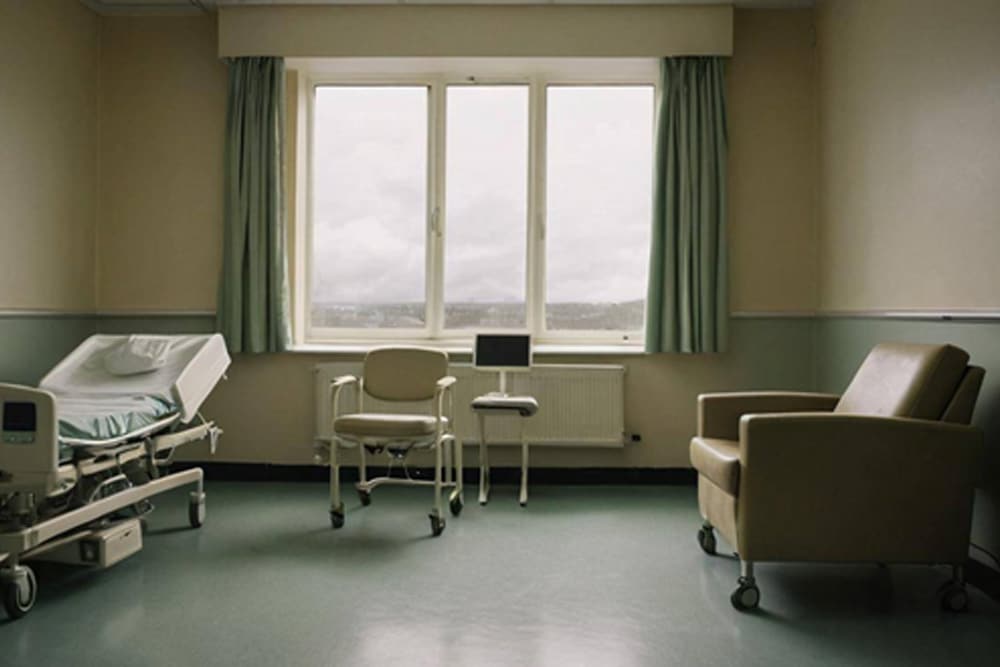Misdiagnosis and Cancer Prognosis in Ireland: Understanding the Impact on Patients
Misdiagnosed cancer in Ireland significantly affects both survival rates and disease progression. Evidence from the National Cancer Registry Ireland reveals that mistaken diagnosis strongly influences numerous Irish cancer cases. Key contributors include irregular symptoms, restricted access to expert physicians, and errors during diagnostic evaluations. Beyond these alarming statistics, lies an impelling call - a need heightened awareness about this pressing issue within patients and healthcare professionals, elevating the importance of precise diagnoses. A wrongly diagnosed cancer patient waits longer than necessary for correct treatment.
Misdiagnosis of cancer in Ireland can have severe consequences, leading to delayed treatment, disease progression, and poorer outcomes for patients. It is crucial for individuals affected by potential misdiagnosis to seek legal assistance from professionals like Whelan Law to explore avenues for legal recourse and ensure their rights are protected.

Misdiagnosis of Cancer: Prevalence and Factors in Ireland
Misdiagnosis, or the incorrect diagnosis of a medical condition, is a significant concern in healthcare, especially when it comes to cancer. In Ireland, it has contributed to a substantial number of cases, leading to both patient distress and delayed treatment. According to the National Cancer Registry Ireland, various factors contribute to misdiagnoses, presenting challenges for patients and healthcare providers.
One of the key factors contributing to the misdiagnosis of cancer is the manifestation of atypical symptoms. Cancer does not always present with classic signs, often manifesting with symptoms that may be mistaken for other less severe conditions. This complexity in symptomatology can lead to misinterpretation by healthcare professionals, resulting in delayed or incorrect diagnoses.
Similarly, limited access to specialists can exacerbate the issue of misdiagnosis. Patients may face delays in obtaining consultations with specialised oncologists or diagnostic imaging experts. These delays can impact the timeliness and accuracy of diagnostic evaluations, potentially leading to missed opportunities for early intervention.
Furthermore, errors in diagnostic testing play a substantial role in cancer misdiagnosis. Whether due to technical limitations or human error, inaccuracies in laboratory tests, imaging studies, or pathology assessments can result in incorrect diagnostic conclusions. These shortcomings underscore the critical need for stringent quality control measures and ongoing professional development within the diagnostic healthcare field.
For example, an individual experiencing persistent gastrointestinal discomfort and mild fatigue may not raise immediate concerns for cancer among healthcare providers as these symptoms are commonly attributed to a range of benign gastrointestinal issues. However, without thorough investigation and consideration of broader differential diagnoses by specialists, such as gastroenterologists or oncologists, underlying malignancies could be overlooked.
Continuing our exploration into this critical issue emphasises that addressing the prevalence and factors contributing to cancer misdiagnosis is paramount to improving patient care and mitigating the impact of inaccurate diagnoses on individuals and their families.
Prognostic Impact of Misdiagnosis
The prognostic impact of misdiagnosis is profound, influencing critical aspects of a patient's cancer journey. A delayed or incorrect diagnosis can lead to a cascade of effects that significantly impact the treatment process and overall prognosis. When cancer is misdiagnosed, valuable time is lost as the disease progresses unchecked, potentially resulting in the need for more aggressive and invasive treatments.
Additionally, misdiagnosed patients may undergo unnecessary procedures or treatments due to an incorrect initial assessment, subjecting them to physical and emotional burdens without any real benefit. This not only affects their quality of life but also adds financial strain and places undue stress on already overwhelmed healthcare systems.
Furthermore, the psychological toll of being misdiagnosed with cancer cannot be overlooked. Patients may experience increased anxiety, distrust in the healthcare system, and enduring emotional distress as a result of prolonged uncertainty. This can have a lasting impact on their mental well-being and their ability to cope with the challenges of their illness.
For instance, if a patient is initially misdiagnosed with a less severe form of cancer and receives treatment tailored to that diagnosis, the delay in receiving appropriate care for the actual condition can lead to a significant decline in their health status. By the time the correct diagnosis is made, the cancer may have progressed to a later stage, reducing the effectiveness of available treatment options and diminishing the likelihood of a positive outcome.
Moreover, worsened survival rates are a grim reality for many patients who fall victim to misdiagnosis. Late-stage diagnosis resulting from an initial misinterpretation often leads to diminished chances of recovery and can significantly impact long-term survival outcomes. Understanding these prognostic impacts sheds light on the urgency for accurate and timely cancer diagnosis.
By comprehending the detrimental implications associated with misdiagnosis, patients and healthcare professionals can actively advocate for robust diagnostic protocols, timely interventions, and meticulous attention to detail in the diagnostic process to minimise the adverse effects on prognosis and ensure optimal patient outcomes.
Understanding the profound impacts of misdiagnosis sets the stage for examining the systemic challenges that contribute to this critical issue in cancer care.
Systemic Challenges Contributing to Misdiagnosis
Cancer diagnosis isn't only about medical aspects; it's also influenced by the broader healthcare system. In Ireland, patients face several systemic challenges that can lead to misdiagnosis and hinder timely treatment. Limited access to diagnostic facilities in certain regions can result in delayed or missed diagnoses, making it harder for patients in those areas to receive early and life-saving interventions.
Furthermore, care coordination lapses among healthcare providers can create gaps in a patient's medical history, leading to incomplete assessments and potentially incorrect diagnoses. Imagine if different healthcare providers don't communicate well with each other about a patient's test results or symptoms—this situation can compromise the accuracy of the diagnosis and subsequent treatment decisions.
Moreover, constraints in the availability of specialised oncologists add another layer of complexity. Without access to these experts, patients may not receive the most up-to-date diagnostic evaluations and treatments. The scarcity of specialised oncologists can lead to delays in accessing pertinent expertise, impacting the accuracy of cancer diagnostics.
These systemic challenges make it difficult for patients to receive the timely and accurate diagnostic care they need. The consequences can be dire, potentially impacting a patient's prognosis and overall survival rates.
Addressing these complex challenges necessitates multifaceted solutions. Investments in healthcare infrastructure are crucial to ensure that diagnostic facilities are accessible across all regions, reducing disparities in access to timely diagnostics. This might involve building new facilities or upgrading existing ones with state-of-the-art equipment and resources.
Furthermore, streamlined communication channels between healthcare entities are essential. An efficient system for sharing patient information and test results among different healthcare providers could bridge the gaps in care coordination. This would lead to comprehensive assessments and reduce the likelihood of misdiagnosis due to inadequate medical history reviews.
Lastly, prioritising training and resources for accurate cancer diagnostics is paramount. Offering ongoing education and professional development opportunities for pathologists and other healthcare professionals involved in cancer diagnosis can enhance their skills and knowledge. Additionally, providing access to advanced technologies and diagnostic tools ensures that practitioners have the necessary resources to deliver precise diagnoses.
By addressing these systemic challenges through investments in infrastructure, enhanced communication channels, and prioritised training and resources, Ireland's healthcare system can take a significant step toward reducing cancer misdiagnosis rates and improving patient outcomes.
Survivorship: Navigating the Aftermath of Misdiagnosis
The experience of misdiagnosis can leave a profound and lasting impact on individuals. It doesn't just affect someone's physical health; it takes a toll on their emotional well-being and financial stability. Imagine the distress of being told you have one condition, only to find out later that it's actually something entirely different. This emotional rollercoaster can be incredibly difficult to manage.
Emotional Challenges: The psychological impact of being misdiagnosed with cancer can be overwhelming. Patients may face heightened anxiety, fear, and mistrust in the medical system. Every ache or pain feels more sinister than it really is, like a lingering shadow that affects their daily life.
Physical Strain: The aftermath of misdiagnosis also brings significant physical challenges. Patients might endure prolonged pain due to delayed treatment or unnecessary interventions, affecting their ability to lead a normal life.
Financial Burdens: Apart from emotional and physical implications, misdiagnosis can also lead to substantial financial burdens. Extended treatment requirements, additional consultations, and corrective procedures all translate into heightened medical expenses for the patient.
Patients may feel overwhelmed by these challenges and unsure about what steps to take next. It's crucial to provide them with guidance and support mechanisms to help alleviate these burdens and navigate the complexities that come with survivorship after misdiagnosis.
In addition to emotional support, it's crucial for survivors of misdiagnosis to have access to resources that can help them understand legal options for seeking compensation due to medical negligence. These individuals deserve justice and assistance in transitioning towards available legal avenues for holding medical practitioners accountable.
Survivorship following misdiagnosis isn't just about moving on; it's about seeking resolution and rebuilding trust in the healthcare system. Understanding these emotional, physical, and financial challenges is crucial for developing comprehensive support networks that empower survivors as they navigate the aftermath of misdiagnosis.
As we envision pathways toward holistic support structures, let's now delve into exploring innovative solutions aimed at revolutionising cancer diagnostics in Ireland and beyond.
Innovations for Improved Cancer Diagnostics
Advancements in medical technology are transforming the landscape of cancer diagnostics, offering new opportunities for accurate and timely detection. The implementation of AI-based pathology analysis has emerged as a game-changer in precision medicine, enabling pathologists to analyse tissue samples with unprecedented efficiency and accuracy. With the ability to process vast amounts of data and identify subtle patterns, AI has the potential to significantly reduce diagnostic errors and enhance treatment planning.
Moreover, the development of liquid biopsies represents a breakthrough in the early detection of cancer. Unlike traditional tissue biopsies, liquid biopsies offer a less invasive approach by analysing circulating tumour DNA and cancer-related proteins in the blood. This non-invasive method not only provides valuable insights into disease progression but also enables clinicians to detect cancer at its earliest stages, increasing the likelihood of successful treatment outcomes.
In addition to AI-based analysis and liquid biopsies, advancements in enhanced imaging technologies have revolutionised the diagnostic process. Cutting-edge imaging modalities such as MRI, CT scans, and PET-CT scans offer unparalleled insights into tumour characteristics and metastasis, guiding clinicians in personalised treatment strategies. By leveraging these advanced imaging techniques, healthcare professionals can obtain comprehensive data essential for accurate diagnosis and treatment monitoring.
These innovative approaches aim not only to reduce the likelihood of misdiagnosis but also to enhance patient outcomes by providing more precise and personalised care. By leveraging AI, liquid biopsies, and enhanced imaging technologies, healthcare providers can tailor treatment plans based on individual patient profiles, leading to improved prognoses and better overall quality of life for cancer patients.
It's truly remarkable how these innovations are reshaping the landscape of cancer diagnostics and empowering healthcare professionals to deliver more effective and personalised care. The intersection of technology and medicine continues to pave the way for groundbreaking advancements that hold immense promise for patients and providers alike.
In summary, these innovative developments not only offer hope for improved diagnostic accuracy but also underscore the critical role of cutting-edge technology in shaping the future of cancer care.
As we move forward, let's now delve into the legal aspects surrounding misdiagnosis in Ireland, shedding light on the rights of patients and responsibilities of medical professionals.


Legal Aspects of Misdiagnosis in Ireland
Being diagnosed with cancer is undeniably a life-altering event. However, what exacerbates this already distressing situation is when misdiagnosis occurs, leading to delayed or incorrect treatment. In such cases, individuals impacted by misdiagnosis are entitled to seek compensation for the harm they have suffered. This is where a medical negligence solicitor steps into the picture.
It's important to understand that a cancer misdiagnosis claim occurs not only when cancerous symptoms are overlooked or mistakenly treated but also when a diagnosis is avoidably delayed due to negligence, faulty equipment, or inadequate medical expertise.
The Role of a Medical Negligence Solicitor
A proficient medical negligence solicitor plays an indispensable role in guiding affected individuals through the intricate legal process. Their expertise and experience empower those impacted by misdiagnosis to understand their legal rights and options clearly. The solicitor would assist in gathering essential evidence, such as medical records and assessments from independent medical experts, to substantiate the claim.
Moreover, these legal professionals are adept at negotiating with healthcare providers and insurance companies on behalf of their clients to secure fair compensation for the physical, emotional, and financial toll caused by misdiagnosis. They serve as advocates, ensuring that their clients' voices are heard, and their rights protected during what can be a distressing and overwhelming period.
The Critical Importance of Seeking Legal Assistance
In Ireland, anyone who has been impacted by cancer misdiagnosis has the opportunity to make a claim. However, it's crucial to be aware of the time limits for initiating a claim. Time constraints apply, making it imperative for affected individuals to seek legal guidance promptly.
Reaching out to a reputable medical negligence solicitor not only provides valuable support but also imparts direction in navigating the complex legal avenues pertaining to misdiagnosis-related harm. These professionals offer compassion and understanding while working diligently to seek remedies for the repercussions of misdiagnosis, granting those impacted an opportunity for recourse and redress.
Understanding these legal aspects sheds light on the recourse available to individuals impacted by cancer misdiagnosis in Ireland, underscoring the vital role played by medical negligence solicitors in safeguarding their rights and pursuing justice.
Amid the daunting landscape of cancer misdiagnosis, seeking legal assistance becomes not just an option, but a crucial step towards securing justice and healing for those affected. Remember, you're not alone; there are professionals ready to advocate for your rights.
Get a Consultation Today! - Call us now at 01 5134687
Gary Matthews Solicitors
Medical negligence solicitors, Dublin
We help people every day of the week (weekends and bank holidays included) that have either been injured or harmed as a result of an accident or have suffered from negligence or malpractice.
Contact us at our Dublin office to get started with your claim today

